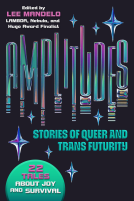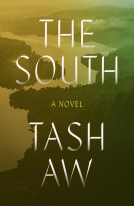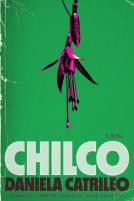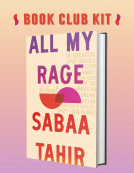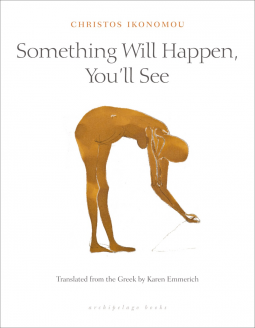
Something Will Happen, You'll See
by Christos Ikonomou
This title was previously available on NetGalley and is now archived.
Send NetGalley books directly to your Kindle or Kindle app
1
To read on a Kindle or Kindle app, please add kindle@netgalley.com as an approved email address to receive files in your Amazon account. Click here for step-by-step instructions.
2
Also find your Kindle email address within your Amazon account, and enter it here.
Pub Date Mar 15 2016 | Archive Date Nov 30 2015
Archipelago Books | Archipelago
Description
Ikonomou’s stories convey the plight of those worst affected by the Greek economic crisis—laid-off workers, hungry children. In the urban sprawl between Athens and Piraeus, the narratives roam restlessly through the impoverished working-class quarters located off the tourist routes.
Everyone is dreaming of escape: to the mountains, to an island or a palatial estate, into a Hans Christian Andersen story world. What are they fleeing? The old woes—gossip, watchful neighbors, the oppression and indifference of the rich—now made infinitely worse. In Ikonomou’s concrete streets, the rain is always looming, the politicians’ slogans are ignored, and the police remain a violent, threatening presence offstage. Yet even at the edge of destitution, his men and women act for themselves, trying to preserve what little solidarity remains in a deeply atomized society, and in one way or another finding their own voice. There is faith here, deep faith—though little or none in those who habitually ask for it.
Advance Praise
"A gripping collection of short stories... Christos Ikonomou has already been hailed in the Italian press as a 'Greek Faulkner,' a description that conveys the emotional power but not the restraint or precision of his prose." -Mark Mazower, The Nation
"The Greek Faulkner... one of the most touching chronicles of the economic crisis to have come out of Greece." -La Repubblica
"Ikonomou redefines the value and the archetypal importance of the Greek epic ... in a few words he depicts the difficulty of living in the here and now." -Panorama
“There’s no arrogance in this book. This sensitive chronicler allows the reader to feel his characters’ existential anxiety from the very first line.” –Spiegel Online
“The Decameron of the crisis.” –Left Magazine
"Ikonomou enters the homes of popular neighborhoods of Piraeus – Nikea, Koridallos, Kokkinia – and gazes people hoping to find a trace, to locate a clue which allows him to dispel the economic tsunami or to appease the protests. It's an intimate eye he has: he sees faces, events and thoughts from behind the glass of a window, hidden by a corner. Sincere and unmerciful." – ANSA News Agency
"Christos Ikonomou gives the crisis a face, many faces." - Neue Zürcher Zeitung
"In 16 intense, touching snapshots he senses the atmosphere in the country and the pain of each individual." -Zuhause Wohnen
"The 43-year-old author of Piraeus writes without frills and laconically about the lives of the so-called little people around him." -Simon Hadler/Alexander Musik
"Finally, there’s a book that drags the Greek reader out of the satiate petty bourgeois frame or the lifestyle craze and throws him deep into the working class slums." -Ta Nea Newspaper
"Spectacular, bright fiction delivered from an author who has already accomplished much—and promises a lot more." -Kathimerini Newspaper
"[Ikonomou] has brought to the surface the struggles and unfulfilled dreams of Piraeus’ working classes, highlighting their beauty and the dignity. One of the most powerful books of the year: a novel that’s been widely read and admired." -Eleftherotypia Newspaper
"Ikonomou’s gaze never becomes melodramatic or pitiful; nor does it fall into the ease of depicting the extreme. There are absolutely no clichés and the usual stereotypes that accompany the depiction of the poor in literature… with this short-story collection (Ikonomou) rewrites the almost forgotten urban social realism into the fabric of Greece’s contemporary literature…(the author) enters contemporary Greek literature very dynamically." -Nea Hestia Literary Magazine
"[Ikonomou’s] dialogue sparkles with authenticity whereas his narrative bridges a simple and often rough language with moments of pure lyricism giving out a spark that fuels emotion." -Conteiner Magazine
Available Editions
| EDITION | Other Format |
| ISBN | 9780914671350 |
| PRICE | $18.00 (USD) |
Featured Reviews
 Lucy B, Educator
Lucy B, Educator
What a delightful and poignant novel. I really enjoyed this after a run of rather "blah" books recently. The characters are entirely engaging. I was hooked from the heart of the lettuce on the first page. You will fall in love with all of them and as a result this will break you heart in the very best of ways.
 Katherine K, Book Trade Professional
Katherine K, Book Trade Professional
Beautifully translated by Karen Emmerich, Something Will Happen, You’ll See is a modern Greek tragedy. Telling the stories of ordinary people whose lives have been destroyed by Greece’s economic crisis, it echoes the classical tragedies in form, while using completely modern language that captures a moment of utter sorrow, betrayal and hopelessness.
"The smell of halva spreads through the house and for a moment disguises the smell of Friday and the smell of loneliness and the smell of the malicious poverty that is slowly and silently and confidently gnawing at Ellie’s dreams and strength and life – and those of anyone who lives to work, who is born and lives and dies for work. For a handful of bills."
The stories stand on their own, but read in their entirety they give a nuanced sense of the despair that invades the hearts and minds of the characters. As they lose their jobs, their homes, their loved ones, or as they huddle together around a fire for warmth and companionship, or as they cling to each other in fear of the night and the coming storm of bankruptcy, the stories look inward, at their selfishness, and their helplessness. A woman climbs into bed with a man-shaped halva, eating him as revenge. Five men tell stories around a fire as they try to escape the cold night and the fear that comes with it. A man collects his father from jail. A couple tells fairytales as their neighbors remove the walls of their home, stone by stone. A young man stands watch over the neighborhood, guarding his mother and sister from threats of rape and murder. As the desperation of poverty chips away at their humanity, the people cling to a sense of control over their own fate. Meanwhile, a storm is coming; the wind picks up, it starts to rain, and a Christmas tree is swept off a balcony.
"He’s drenched, dripping all over as if every pore in his skin is an eye and every eye is crying. It’s raining harder. Raining with hatred, like a punishment. Lightning keeps flashing across the sky. It’s like there’s a war on up there – light warring with darkness. A war. Light battling to enter the world and someone battling to shut it out, to seal up all the cracks, to sink the world in darkness."
The writing hooked me from the first page; it is lyrical, poetic, and emotionally devastating. Reminiscent of the greek chorus, motifs, phrases, and entire passages are echoed and repeated; each time with new meaning and overwhelming effect. The brewing storm, the repeated motif of fear of the night – these images become charged with emotional symbolism that captures a moment of pain in a nation’s psyche.
"And parents will tell their children stories about strange people who once lived and died for a handful of cash and the children will listen with their mouths hanging open and all these things will seem magical and unreal."
The characters are easy to empathise with, although they are, for the most part, utterly unlikable. Perhaps I didn’t like them because they were too human, too flawed, too real. This book felt unforgivingly honest. As they feel betrayed by those who are supposed to protect them – the officials who place useless recycling bins on the streets rather than working to solve the problems they face; looking busy but failing to do anything real – the characters resent those who are able to succeed, and claw at each other for scraps. A stream of consciousness style makes the voices blend together into a single song of poverty. The improvised nature of this makes it all the more convincing; it echoes the hysteria that is slowly brewing. But there is also a thread of faith, of solidarity despite the fear. So often, the voices change from “I” to “We”, from “me” to “us”, and the sense of community gives a semblance of hope.
"We talk and talk and the more we talk the better I understand that what binds us together are the things we’re afraid of and the things we hate. How did we end up like this? Where did all the hatred and fear come from, can you tell me? And the more time passes the worse things get. Some days I see things that make me want to kill someone. My lord. I went through hell on the ships all those years but I never felt a thing like that. Never. But now it’s too much. I’m drowning, you know? Drowning."
This is such a powerful, devastating little book. I couldn’t put it down; it is an accident from which I could not tear myself away. As the storm slowly blows in; as the sun sets and the darkness creeps over the islands; as the people stifle their sorrows in alcohol and cigarettes, or cling to each other out of fear; as the world is destroyed, piece by piece, until nothing remains, the voices in this book cry to be heard. It is definitely worth reading.
 Maria Grazia B, Book Trade Professional
Maria Grazia B, Book Trade Professional
The protagonists of these stories are living the hell. A hell of misunderstanding and extreme poverty. Not a ray of light illuminating their lives, not the smallest hope. These stories seem to be set in ancient times, when fate was a fearsome and powerful god, and instead are set in today Greece, the one of the times of the crisis.
The only drawback: there are many, too many. At one point the reader gives a crash under such despair.
Thank Archipelago Books and Netgalley for giving me a free copy in exchange for an honest review.
Readers who liked this book also liked:
Silvia Moreno-Garcia
Historical Fiction, Literary Fiction, Sci Fi & Fantasy





